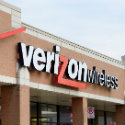
Verizon is asking for FCC permission to conduct a series of tests in the 3.5GHz CBRS spectrum band in Minneapolis, Minnesota.
Importantly, the operator said the tests will involve 5G and carrier aggregation technology. As PCMag reported, Verizon so far has been using CBRS spectrum only for 4G.
"Verizon and partners plan to conduct the proposed 5G tests using pre-commercial equipment in prototype form," Verizon said in its FCC application. The operator did not name the device and equipment partners it will be working with for the tests.
The move doesn't come as much of a surprise. Verizon's Adam Koeppe confirmed to Light Reading earlier this year that the operator will be able to activate 5G signals on its CBRS equipment later this year via a software upgrade.
But the inclusion of carrier aggregation in Verizon's tests is particularly noteworthy. Carrier aggregation technology can be used to bond together transmissions across different spectrum bands, thus dramatically increasing users' connection speeds. Verizon said it will test gluing together transmissions in CBRS with some of its other licensed spectrum bands.
Specifically, the operator said it plans to evaluate "intra-band and inter-band carrier aggregation between 3.5GHz and licensed (and/or unlicensed) bands," including its licensed 700MHz, PCS and AWS bands.
Operators, including Verizon, typically decline to provide insights into their network testing efforts.
Verizon's interest in the CBRS band is well documented. As Light Reading reported in 2019, Verizon has been adding support for the 3.5GHz CBRS spectrum band to its network for years. And last year Verizon spent $1.9 billion to purchase CBRS spectrum licenses across the country in an FCC auction.
Verizon's tests roughly coincide with the operator's three-year, $10 billion program to put its C-band spectrum licenses into use.
Related posts:
— Mike Dano, Editorial Director, 5G & Mobile Strategies, Light Reading | @mikeddano
About the Author(s)
You May Also Like












